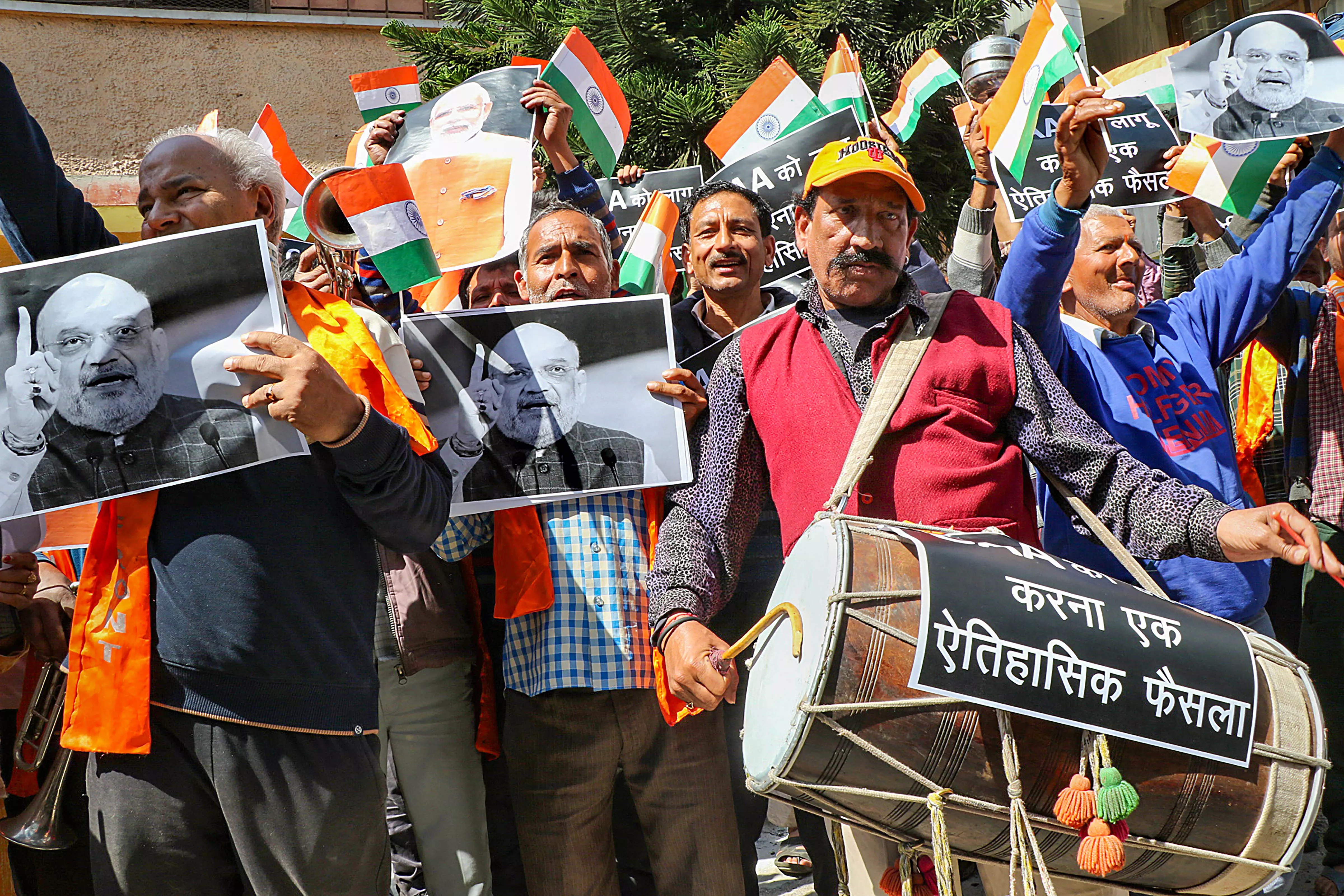
18 Hindu refugees from Pakistan get Indian citizenship at Ahmedabad camp
This takes the number of Hindu refugees from Pakistan residing in Ahmedabad and who have been granted Indian citizenship to 1,167

At least 18 Eighteen Hindu refugees from Pakistan residing in Ahmedabad have been granted Indian citizenship during a camp attended by Gujarat Minister of State for Home Harsh Sanghavi.
The minister conferred Indian citizenship to the 18 persons at a camp organised at the district collector's office on Saturday (March 16), urging them to work together to realise the dream of a new India.
"It is expected that all of you will be determined to participate in the development journey of the country," he said, adding the central and state governments were committed to bringing all those who have obtained Indian citizenship to the society's mainstream.
Gazette notifications of 2016 and 2018 empower the district collectors of Ahmedabad, Gandhinagar and Kutch in Gujarat to grant Indian citizenship to people of minority communities from Pakistan, Afghanistan and Bangladesh, said an official release.
With this, a total of 1,167 Hindu refugees from Pakistan residing in Ahmedabad district have so far been granted Indian citizenship, it said.
Sanghavi said Prime Minister Narendra Modi and Union Home Minister Amit Shah have made special efforts for the suffering minorities of Afghanistan, Pakistan and Bangladesh to get Indian citizenship easily and quickly.
The exercise came on a day the Election Commission announced the dates for the Lok Sabha polls.
On March 11, the Union government announced implementation of the Citizenship (Amendment) Act, 2019, paving the way for citizenship to undocumented non-Muslim migrants from Pakistan, Bangladesh and Afghanistan.
With this, the government aims to start granting Indian nationality to persecuted non-Muslim migrants -- Hindus, Sikhs, Jains, Buddhists, Parsis and Christians -- from the three countries.
(With inputs from agencies)

